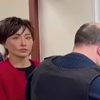 CCC leader Nelson Chamisa said it was «a messed up electoral environment.» Photo: AARON UFUMELI/EPA-EFE/Shutterstock
CCC leader Nelson Chamisa said it was «a messed up electoral environment.» Photo: AARON UFUMELI/EPA-EFE/Shutterstock
Zimbabwe's opposition leader claimed victory in the country's elections, accusing President Emmerson Mnangagwa of a «gigantic fraud» after observers said the vote was conducted in an atmosphere of fear.Mnangagwa, 80, won a second five-year term with 52.6 percent of the vote to 44 percent for his archrival Nelson Chamisa, according to official results announced late Saturday by the Zimbabwe Electoral Commission.
Opposition Civic Coalition for Change (CCC) refused to ratify the results, saying they were “false”.
“We won this election. We are leaders. We even wonder why Mnangagwa was declared the leader,” said Mr. Chamisa, a lawyer and pastor who leads the CCC.
He added: “We knew we were going to the wrong election. We have the wrong electoral roll, the wrong delimitation report. We had the wrong ballot. It was an imperfect electoral environment.»
 Emmerson Mnangagwa speaks at a press conference at the State House in Harare after winning the presidential election Photo: JEKESAI NJIKIZANA/afp
Emmerson Mnangagwa speaks at a press conference at the State House in Harare after winning the presidential election Photo: JEKESAI NJIKIZANA/afp
Earlier in the day, at the presidential palace, Mr. Mnangagwa urged those who contested his re-election to go to court.< /p>
«Those who think the race was run wrong should know where to go,» said the 80-year-old man, nicknamed Crocodile by supporters because of his political cunning.
>Ruling party Zanu-PF also seemed ready to regain control of parliament, but without the two-thirds majority that previously gave her the power to change the constitution.
Polls took place last week in the South African country of 16 million people. was marred by lengthy delays in the delivery of ballots that kept citizens waiting in lines for hours and required a second day of voting in some areas.
The opposition complained of widespread pre-vote intimidation and dozens of local election monitors. were arrested afterwards.
Promis Mwananzi, spokesman for the opposition Civic Coalition for Change, said Zimbabwe's electoral body «can no longer count on protecting our votes and our democracy.»
Mr Mnangagwa ousted his longtime ally Robert Mugabe in an internal coup in 2017 before winning his first term a year later.
He leads a country hailed as a model for African development in the 1980s, but it has since slipped into economic crisis and authoritarianism.
A test of support
The vote was seen across southern Africa as a test of support for Mr Mnangagwa and the party that has been in power since independence in 1980.< /p>
Credible and peaceful elections are seen by the international community as the key to reopening. normal relations with Zimbabwe after two decades of isolation and sanctions.
However, while the vote passed without the political violence that marred previous elections, observers say it often fell short of international standards.
Observers said opposition rallies were banned, state media were biased, and voters were intimidated.
A team from the European Union said the vote took place in a «growing tense atmosphere» and the government used crackdowns. laws and intimidation to influence voters.
The preliminary report found that during the elections «fundamental freedoms were increasingly restricted» and there were «acts of violence and intimidation that created a climate of fear.»
 Supporters of President Emmerson Mnangagwa celebrate after he was declared the winner on Saturday. Photo: Tsvangirai Mukwaji/AP
Supporters of President Emmerson Mnangagwa celebrate after he was declared the winner on Saturday. Photo: Tsvangirai Mukwaji/AP
Southern Poll Monitors The African Development Community (SADC), based in Botswana, was also unusually outspoken, saying the elections fell short of regional or democratic standards.
“Some aspects of the agreed elections did not meet the requirements of the country's constitution. Zimbabwe, the electoral law, and the SADC principles and recommendations governing democratic elections,” said Never Mumba, head of the delegation.
Many in the international community had high hopes when Mr. Mnangagwa ousted Mr. Mugabe, but he got it. has struggled to revive the economy and has been accused of maintaining Zanu-PF's authoritarian rule.
Inflation is in the triple digits and unemployment is high.
He enters his second term without a recognized successor , and factions of his party are still unhappy with his role in toppling Mugabe.
























































Свежие комментарии